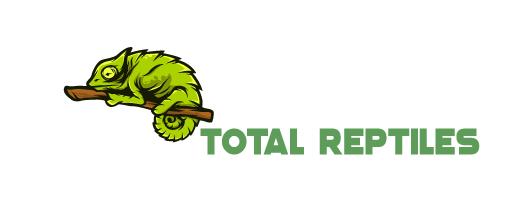As omnivorous reptiles, bearded dragons can eat a lot of things. Although their staple foods include crickets and mealworms, you should also provide them with other insects. But can bearded dragons eat silkworms?
Your bearded dragon can eat silkworms. In fact, silkworms are one of the healthiest and most nutrition-rich insects you can add to the diet of bearded dragons. It is also rich in calcium, which bearded dragons’ health highly demands.
But how many silkworms should you be in the feed of the bearded dragons? Will there be any problems if you include too many of these insects? Stick around if you want to get all the details.
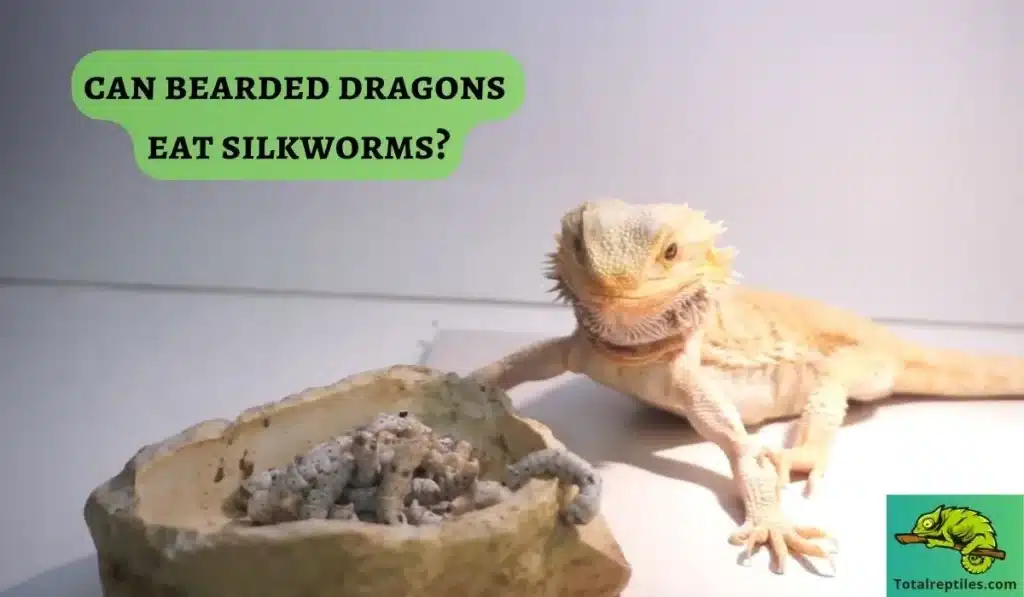
What Are Silkworms?
Before you get into the details and include silkworms in the food of bearded dragons, you need to have a proper idea about the insect. At the core, silkworms are the larval form of the domesticated silk moth, which goes by Bombyx mori.
Even though these insects have “worms” in their name, they are not actually worms. Instead, you can categorize them as caterpillars. But yes, they do pass through a “worm” stage, in which they are usually called worms.
Generally, when the silkworms are a month old, they wrap themselves in a silk ball. They will stay like that for around two weeks and then emerge as moths. You will find them in different colors at the worm stage, from pure white to stripes.
As you can tell, silkworms are mainly used to produce silk. These worms go through a process called sericulture to offer silk. The process basically involves spinning the cocoons made of silk fibers from the silkworm.
These fibers are then harvested and processed to convert into silk thread. But apart from that, many pet keepers rely on silkworms to ensure that their pets get need calcium from the feed.
Can Bearded Dragons Eat Silkworms?
As mentioned earlier, silkworms are safe for bearded dragons. To be exact, these worms are a great addition to the diet. Wondering why? The insect is nutrient-rich, soft, slimy, and juicy. For these reasons, bearded dragons love to munch on silkworms.
Another great part is that you don’t need to worry about the size and age of the lizards. Silkworms are considered to be readily accepted by all bearded dragons. So, it will be easy to integrate silkworms into the diet of bearded dragons.
Nutritional Value of Silkworms for Bearded Dragons
Silkworms are indeed a nutritious food source for bearded dragons. They offer a variety of benefits to these reptiles. Want to know what benefits the bearded dragons will enjoy after having silkworms? Some of the main highlights are:
High Protein Content
These worms are very high in protein, making them an excellent food source for bearded dragons. Now, in case you are wondering, protein is essential for muscle growth, repair, and maintaining overall health.
Full of Calcium
As hinted earlier, the bodies of bearded dragons have a high demand for calcium. To be exact, if you are to make sure that the reptiles maintain their health well, you need to offer them dietary calcium.
However, if you add enough silkworms to the diet of bearded dragons, there will be no need to rely on dietary calcium too much. The calcium content of the silkworms should be enough.
That said, in bearded dragons, calcium helps keep bone health in check. It also helps to maintain overall health.
Low in Fat
Silkworms have a very low-fat content. That makes them suitable to be added in bulk into the feed of the bearded dragons. In other words, you will not need to monitor the intake of the silkworms that strictly.
Vitamin and Mineral Dense
These worms are packed with important nutrients, including iron, potassium, magnesium, and vitamin B. All of these nutrients are essential for the body of bearded dragons.
Easily Digestible
The bodies of silkworms are soft and squishy, making them easy to digest. For that reason, if you notice that your bearded dragon is not eating other insects, it would be a good idea to include more silkworms in their feed.
Potential Risks of Feeding Silkworms to Bearded Dragons
Silkworms do come with some potential risks. And this is not just specific to silkworms; every food source has potential drawbacks. Nonetheless, some of the risks that are associated with silkworms are:
Choking Hazard
Even though silkworms are squishy and easy to digest, they can surely be a choking hazard for reptiles. For example, some silkworms are larger than mealworms and crickets. If you feed those to the bearded dragons, they might choke on these worms.
For that reason, whenever you are feeding bearded dragons with silkworms, make sure that you are monitoring the entire feeding session. That is, do not feed them silkworms without proper supervision.
Overfeeding and Digestive Issues
Yes, silkworms are one of the healthiest insects for bearded dragons. However, you should not overfeed them. Too much silkworm in their feed can lead to bloating, diarrhea, lethargy, and other digestive issues.
Pesticide Exposures
Not all silkworms are raised as feeder insets. Some of them will be from harsh environments, which will make them carry pesticides and other chemicals. These chemicals can be very detrimental to the health of bearded dragons.
Therefore, make sure to source the silkworms only from reputable sources. Do not get them from sources that are not raising the silkworms as feeder insects.
How Many Silkworms Should I Feed My Bearded Dragon?
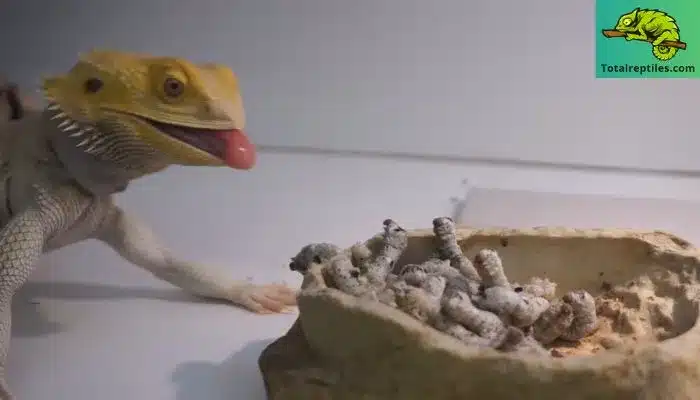
The number of silkworms you should feed to your bearded dragons will mostly depend on their age. To give you an example, you can feed 2 to 3 silkworms once or twice per week to the adult bearded dragons.
On the other hand, for juveniles, you can increase the count as their diet will usually require more insects than leafy greens. And the same thing applies to babies. But do make sure not to offer them large-sized silkworms.
Even so, do consider the fact that silkworms are a bit on the expensive side. So, it would be a good idea not to make it a staple food.
Can Bearded Dragons Eat Bloodworms?
Bearded dragons can eat bloodworms. However, it is not recommended for you to include bloodworms as a daily part of their diet. There’s a good reason behind it, and you will be able to find out about it soon.
Nutritional Values of Bloodworms
Bloodworms are very rich in protein. For that reason, it is considered to be a good source of food for reptiles. However, bloodworms do not contain a wide range of amino acids as some other insects.
Moreover, bloodworms have a high-fat content. So, if you make bloodworms a staple food for bearded dragons, they will have a higher risk of facing obesity and other health diseases.
Benefits of Including Bloodworms in a Bearded Dragon’s Diet
Bloodworms do not specifically offer any special benefits in a bearded dragon’s diet. And as you can tell, their nutritional content is not as outstanding as that of some other insects, such as silkworms.
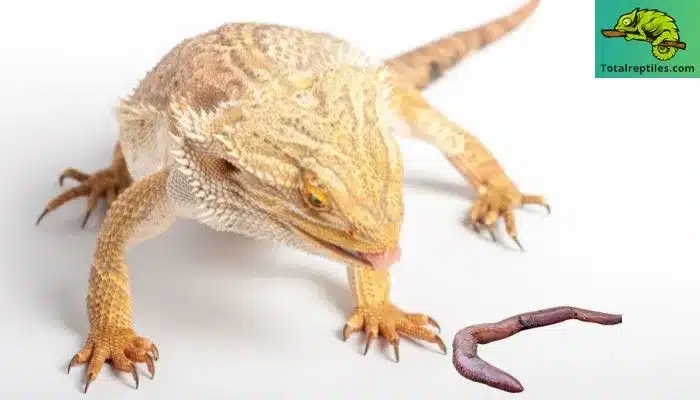
However, you can definitely add the bloodworms to enhance the protein count of the feed. Bloodworms also add calcium to the mix, an essential mineral for bearded dragons. It helps to maintain bone health.
How Many Bloodworms Should I Feed My Bearded Dragon?
When feeding bloodworms to bearded dragons, you need to consider one crucial thing. That would be the fact that these worms have a high fat count.
With that in mind, add one or two bloodworms to the meal of small or young bearded dragons. Adults do not need to rely on insects too much.
Considering that, you should not add more than one bloodworm to the feed of the adult bearded dragons.
Can Bearded Dragons Eat Butterworms?
Like bloodworms, bearded dragons can eat butter worms. In fact, it would be a good idea to add butter worms into the feed of the bearded dragons as these worms are nutrient dense.
Nutritional Value of Butter Worms
Butter worms have a low fat count and contain a relatively high amount of protein. They also contain fiber, which will aid in the digestion of the bearded dragons. These worms even have a good amount of minerals and vitamins.
Benefits of Including Butterworms in a Bearded Dragon’s Diet
As you can guess, butter worms can offer a good amount of protein in the overall feed. That will make sure that muscle growth is at the right rate. These worms also have chitin, which helps the bearded dragons to absorb minerals.
In addition, butter worms are a good source of calcium. Moreover, these worms can be very filling as they have fiber. So, the bearded dragons might not even need to eat too many of these worms to be satisfied with their meal.
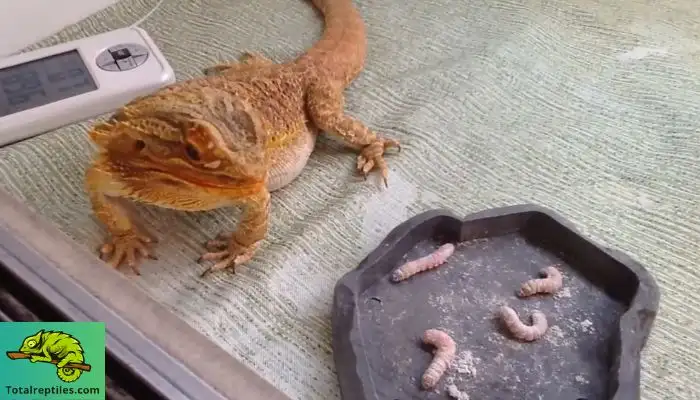
How Many Butterworms Should I Feed My Bearded Dragon?
Adult bearded dragons can eat up to 15 butter worms each day. On the other hand, juveniles can have up to 5 butter worms per day. Even if they can eat many of these worms, you need to feed them in moderation.
Generally, pet keepers feed butter worms as occasional treats. Wondering why? These worms have a high calorie count. So even though they have a low fat count, too many butter worms in the feed can lead to obesity.
Can Bearded Dragons Eat Inchworms?
Bearded dragons can eat inchworms. However, it is recommended not to feed them inchworms as some potential risks are associated with these worms. The main red flag is that these worms can carry parasites.
Even if they don’t have parasites, the chances of them carrying pesticides are reasonably high. Moreover, the worms do not even contain a high overall nutritional value.
Final Words
So, can bearded dragons eat silkworms? To recapitulate, yes, bearded dragons can eat silkworms.
In fact, silkworms are one of the healthiest insects for bearded dragons. Therefore, if needed, you can make these a staple food source for the reptiles. But make sure to source the silkworms from a reputable seller.
